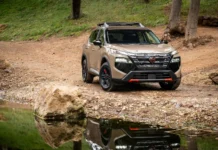
Local figures and members of the public celebrate Ford’s purchase of the long-shuttered Michigan Central Station
Detroit has long lied at the heart of America’s automotive industry. Not for nothing, as the Big Three – Ford, Fiat-Chrysler and General Motors – all call the Motor City home. The city saw a golden age thanks to the automobile, but it’s also seen its fair share of hardships. One of the largest symbols of those hardships was the closure of Michigan Central Station in 1988. Over the past thirty years, the 114-year-old structure underwent years of decay as well as restoration efforts, the latter of which have taken place in the last decade. However, no negotiations to restore the building came to fruition, until now. As of this month, Ford Motor Company purchased Michigan Central Station from the Monroun family, who previously owned the building since 1996.


Ford’s plans
So what does Ford plan to do with the historic building? By 2022, the company will move approximately 2,500 employees into three-quarters of the 1.2 million square feet of space. The other 300,000 square feet will comprise community and retail space, as well as residential housing.
In an effort to preserve the past and plan for the future, Ford will use its Corktown campus, which includes Michigan Central Station as well as the former Detroit Public Schools Book Depository, two acres of vacant land and two former factories, to house its electric vehicle and autonomous business teams. Jim Hackett stated, “[Corktown] will be a proving ground where Ford and our partners design and test the services and solutions for the way people are going to live and get around tomorrow, creating a Southeast Michigan mobility corridor that spans west from Dearborn to Ann Arbor, and east to Detroit.”
Stay tuned to TFLcar.com for more updates! Subscribe to The Fast Lane Car and TFLnow for more news, views and real-world reviews.

























